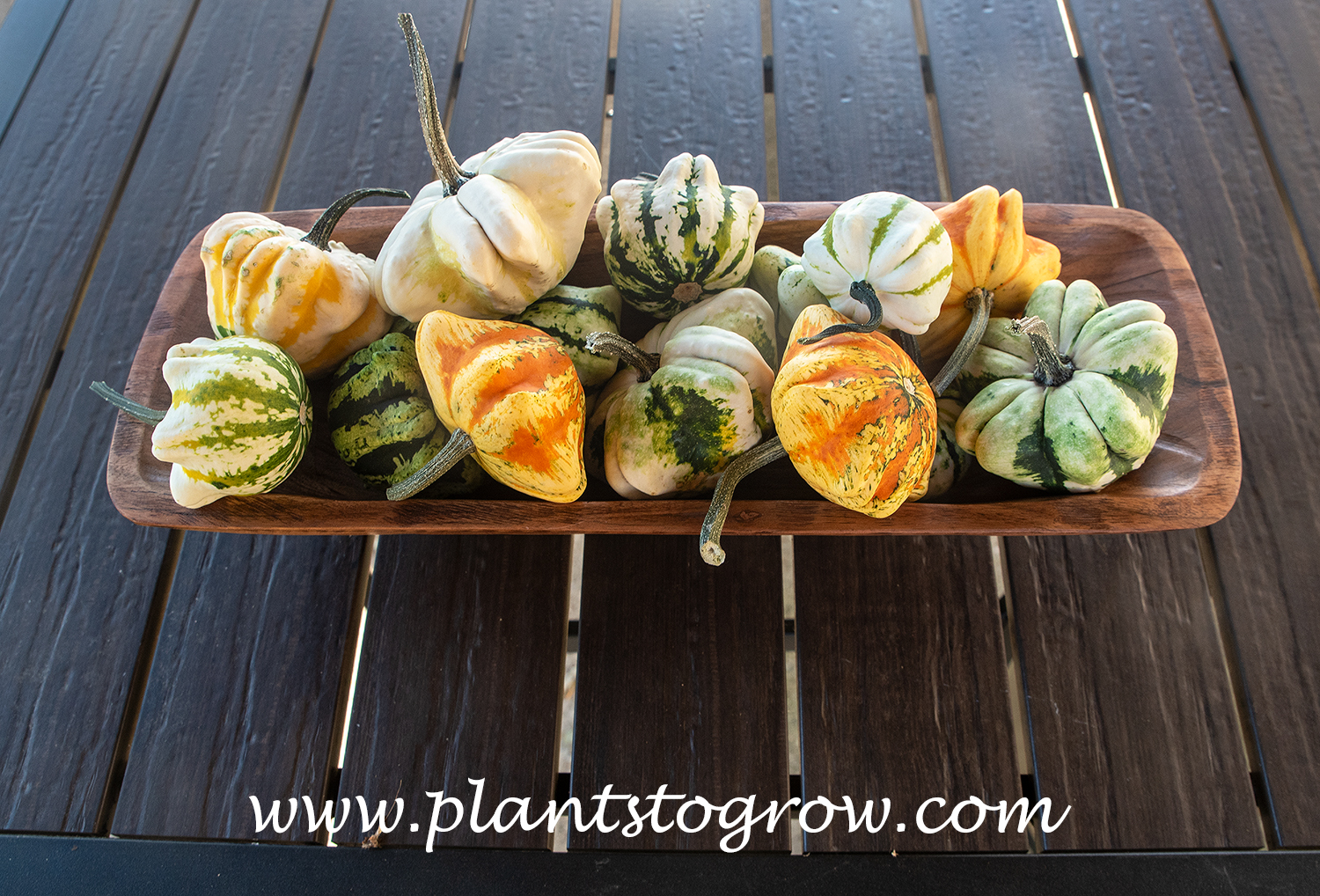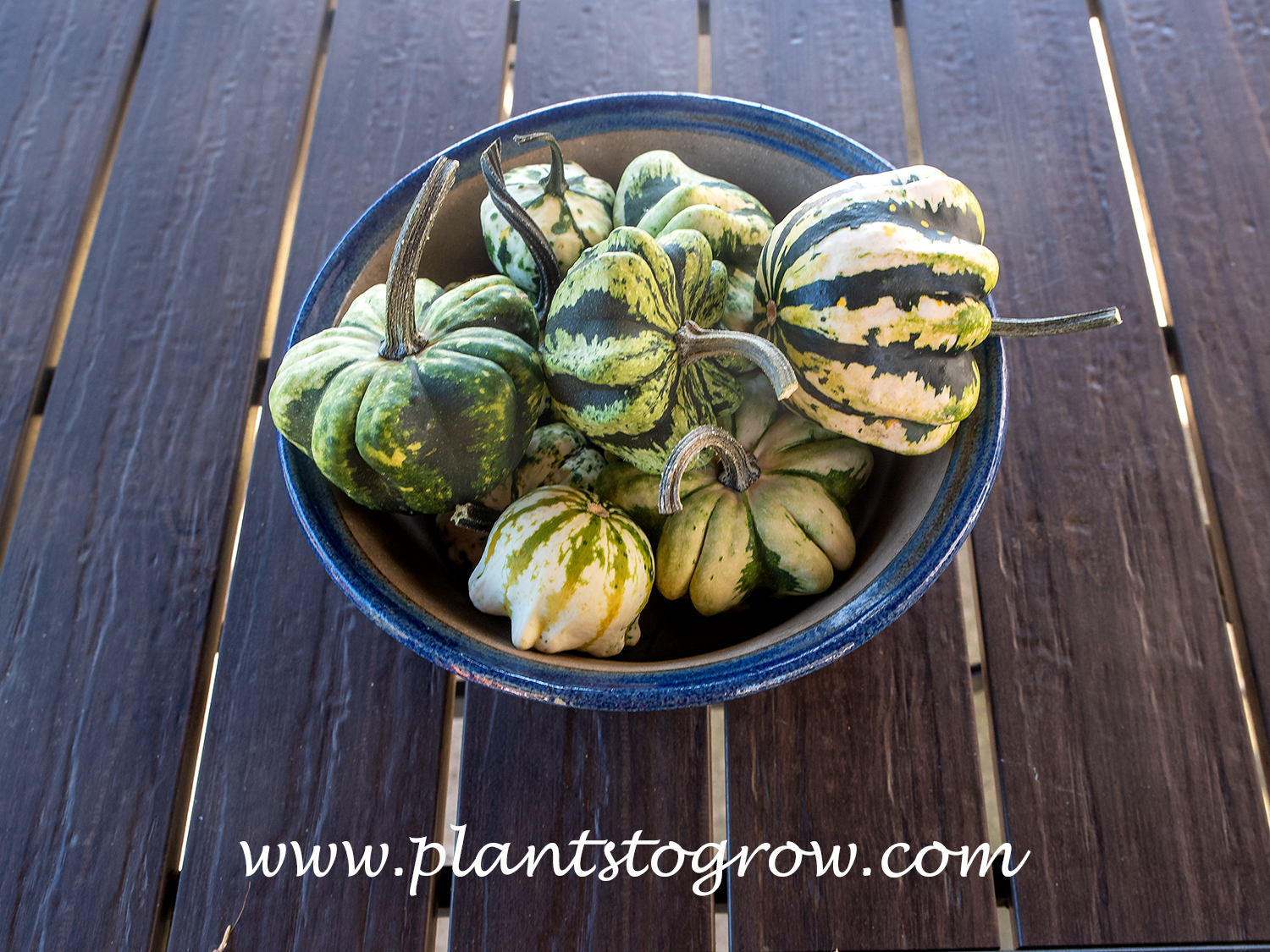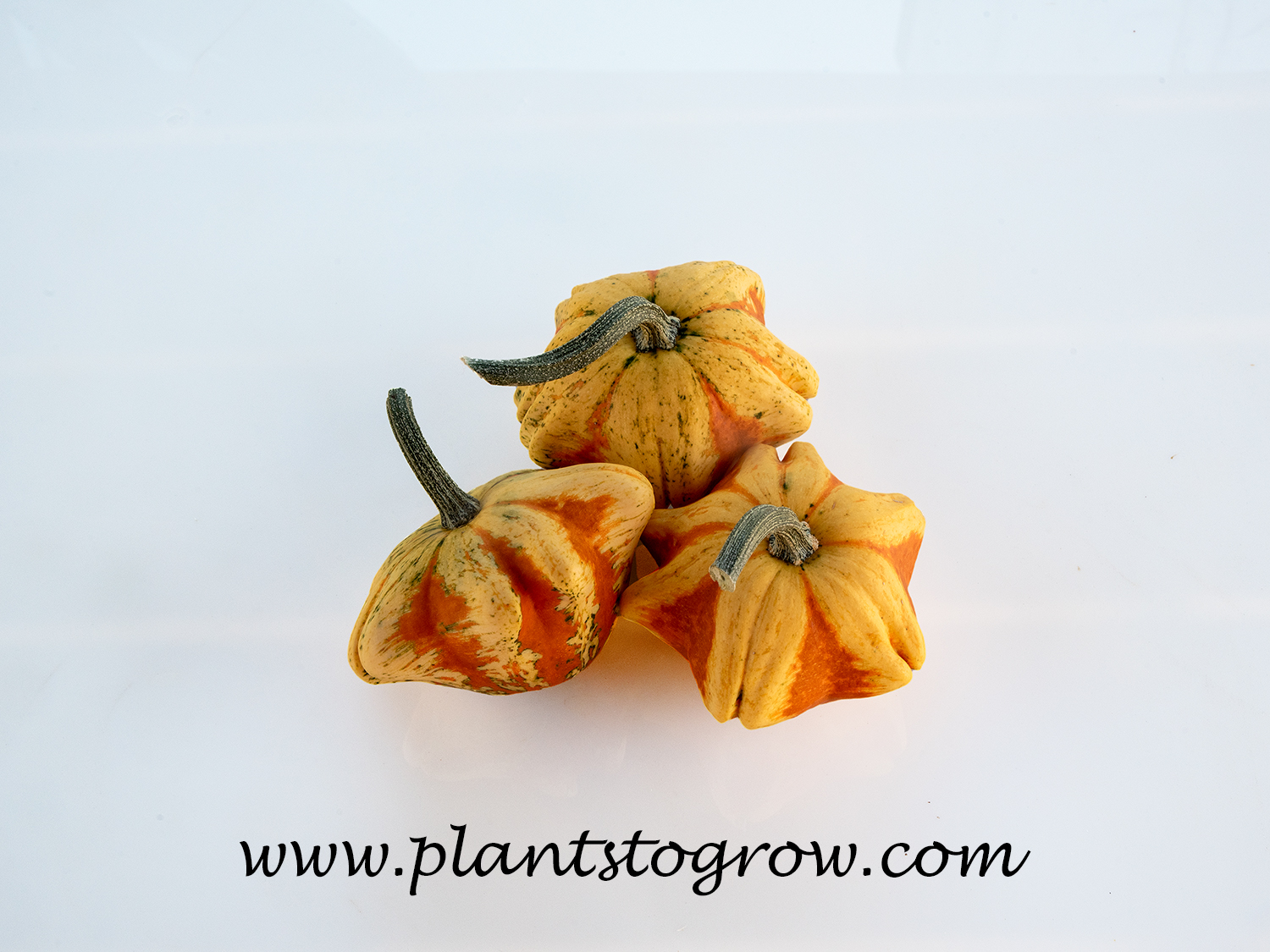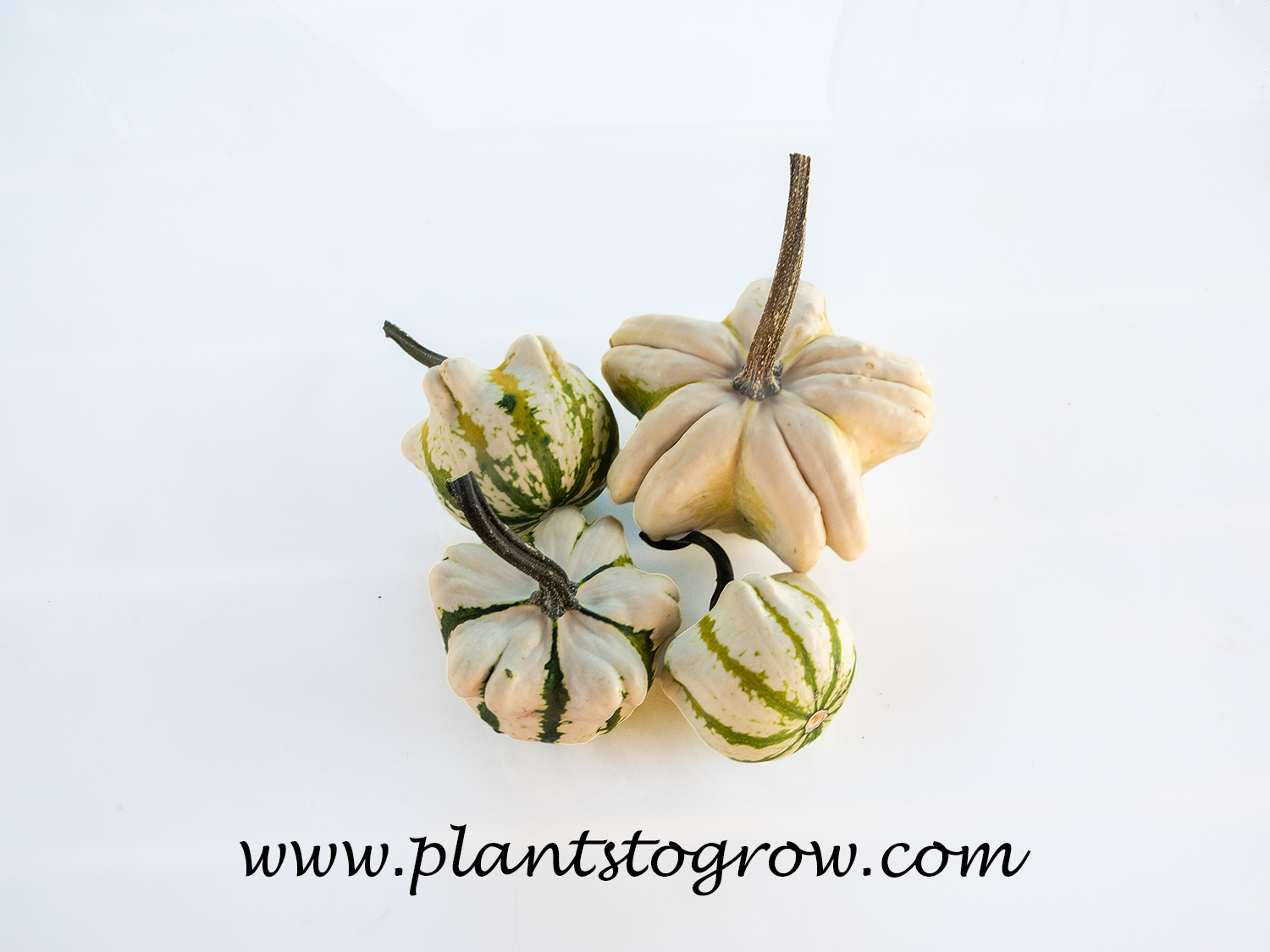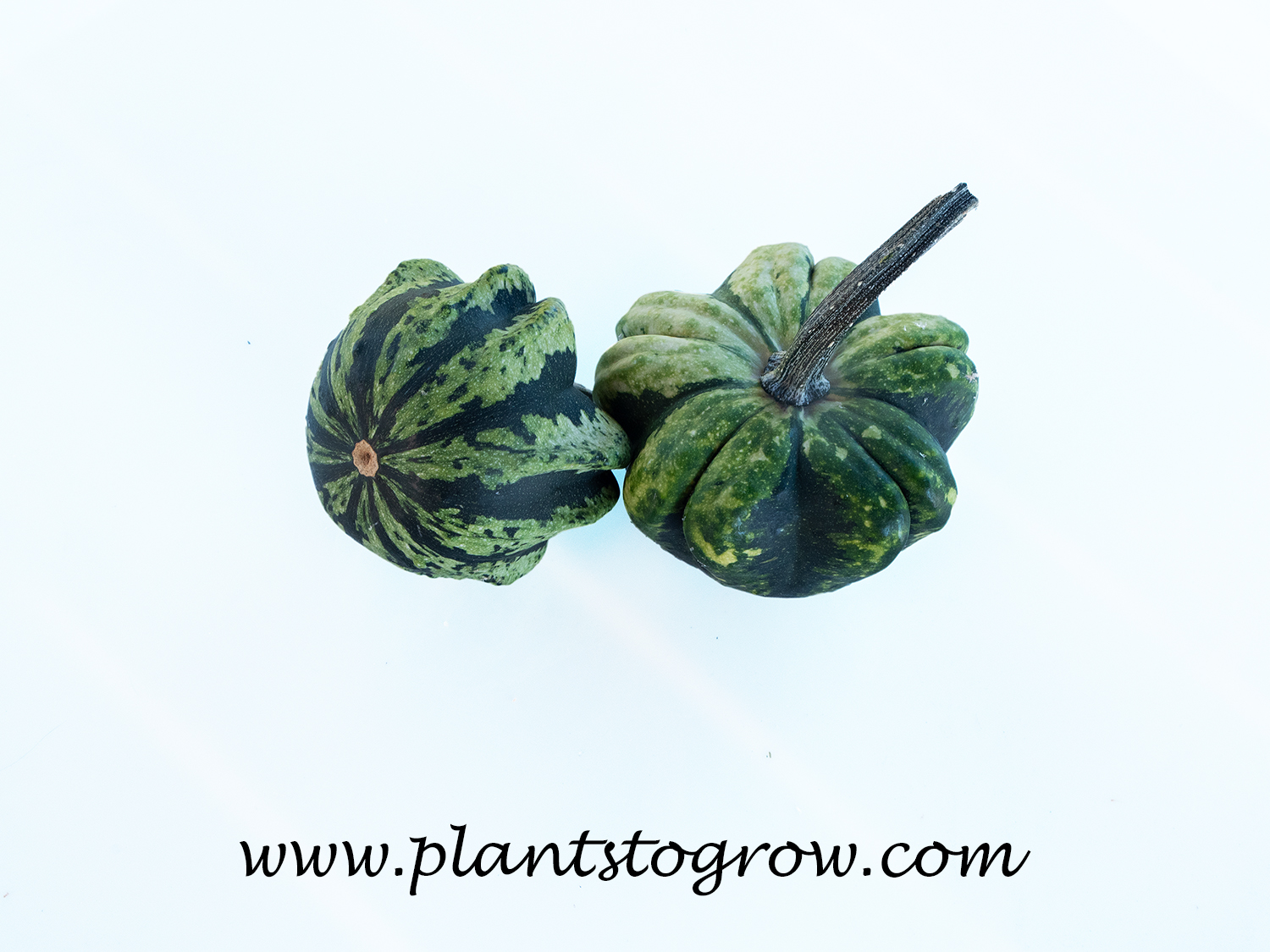| Description | Daisy Gourd (Cucurbita pepo) is an ornamental gourd with a daisy-shaped scalloped edge.. Comes in green, yellow, orange, and white. Grow as an annual. |
|---|---|
| Plant Type | Annuals |
| Sunlight | full |
| Moisture | average |
| Soil & Site | average |
| Temperature | Do not like cold temperatures in zone 5. I usually don't put out seedlings until the end of May to mid-June. |
| Flowers | Gourds are generally monoecious, meaning they possess both male and female flowers on the same plant. Most gourd flowers bloom at night and only last for a single night. The pollen from gourds is sticky, requiring the assistance of insects for transfer. If a flower is pollinated early, it will produce larger fruit. However, if a gourd flower is not pollinated within a day, it will perish. To increase fruit set, many gardeners choose to hand-pollinate the flowers. |
| Fruit | Botanically referred to as a pepo, having a thick, leathery skin and not considered edible because it has little flesh, just a tough rind. Comes in green, yellow, orange, and white. |
| Leaves | Can be very prickly. |
| Stems | A creeping vine that can be very prickly. Will root along the soil surface. |
| Dimensions | Will spread at least 4-6 feet or more and climb up fences or other structures. |
| Maintenance | If needed, the vines can be redirected. |
| Propagation | I find it easy to start from seed in situ. I like to start 3-4 seeds in peat pots and then thin them to a couple of plants after they are planted. |
| Native Site | Native to the Andes and Mesoamerica. |
| Cultivar Origin | Developed by Larry Eckler of Niles, Michigan, USA. |
| Misc Facts | It is recommended to let the gourds mature and dry on the vine before harvesting. After harvesting, the fruit should be cleaned by washing or brushing off the dried soil. Then, they should be left to cure in a warm and dry location. The vines can be prickly, so using sturdy scissors or pruning shears to cut the gourd off the vine is best. Ornamental gourds are closely related to squashes and pumpkins. Usually, they are not consumed because they have hard, dry skin and less flesh than the tastier edible squashes. |
| Author's Notes | Will ressed in the garden. If this is a problem, it can be aliveated by picky up all the fruit left in the garden. If cleaned and dried properly, they will last for a long time. |

Cart
